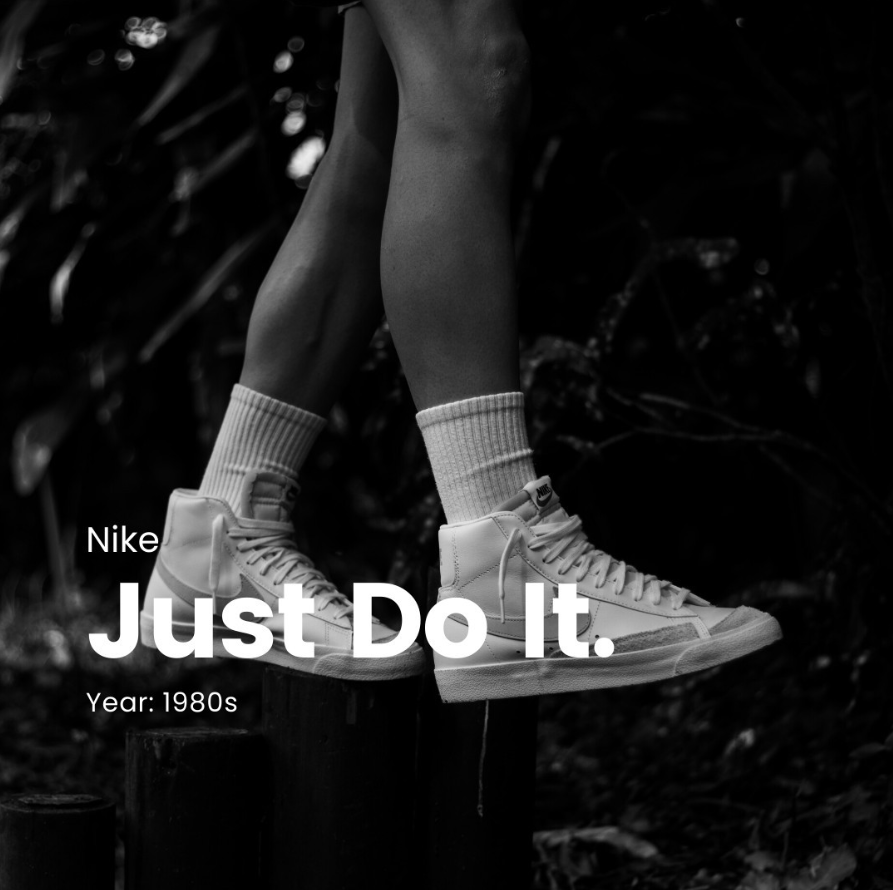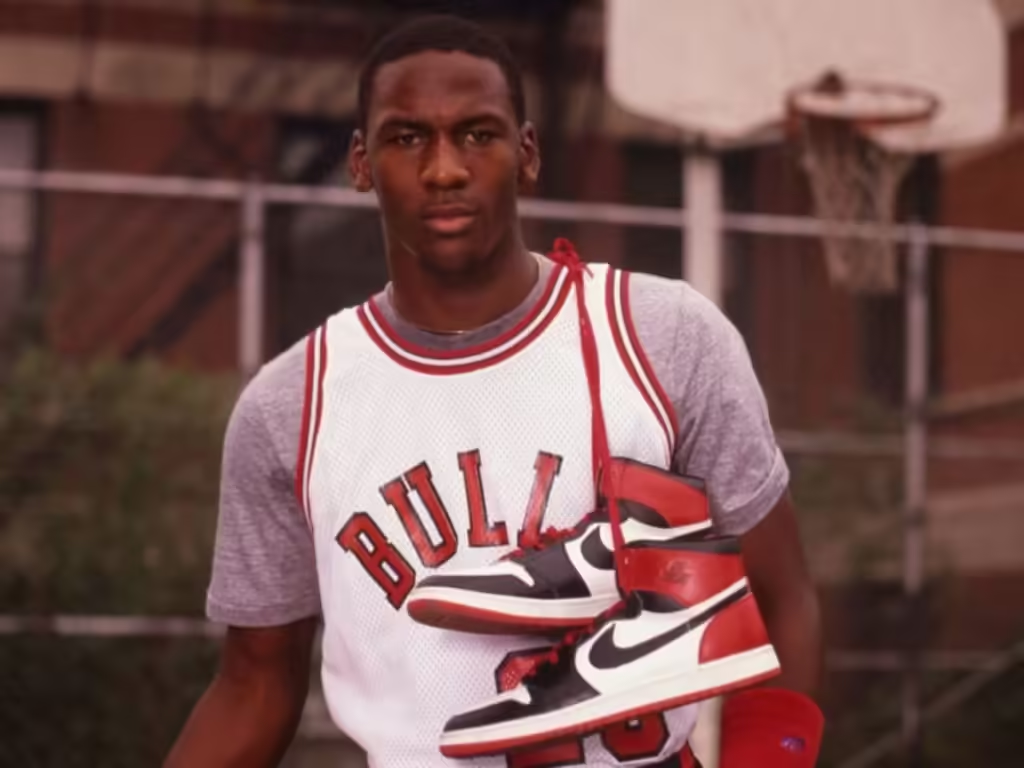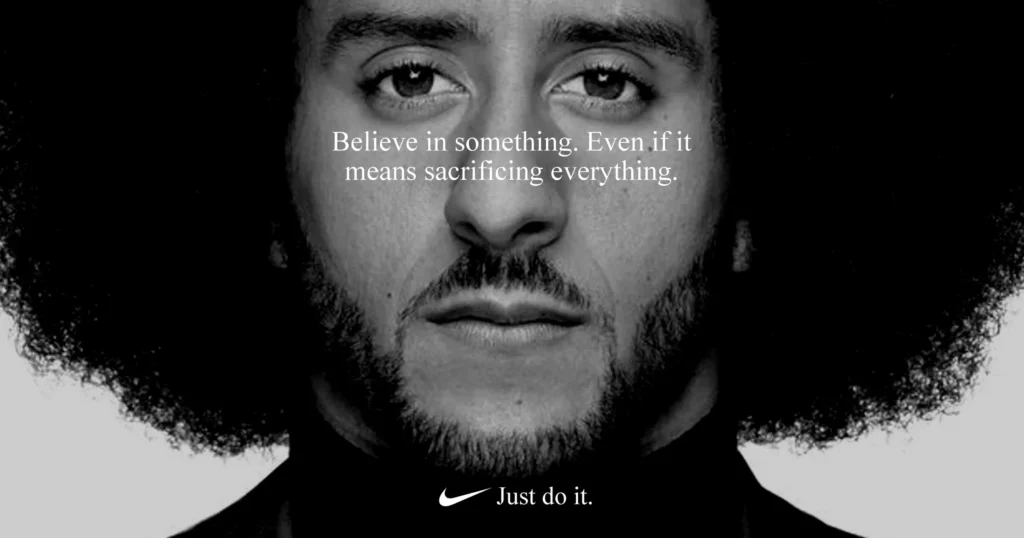
Nike “Just Do It” Campaign Case Study
Nike’s “Just Do It” campaign is one of the most successful marketing efforts ever. Launched in 1988, “Just Do It” became more than just a slogan; it was a motivational message that inspired people to overcome their limitations and strive for what they believed was impossible. Nike’s vision extended beyond simply promoting its products. Instead, it tapped into a powerful and universal theme: resilience and courage. Through emotional branding and storytelling, Nike was able to create a bond with its audience that went beyond just sportswear.

The campaign started in the late 1980s, a time when Reebok was a strong competitor, especially in the aerobics market. Nike knew it had to do something different to stand out, not only to appeal to athletes but to reach a larger audience of people who wanted motivation in their daily lives. “Just Do It” was created with this idea in mind, capturing Nike’s core philosophy in a simple yet powerful phrase. It was a call for people to face challenges, push through difficulties, and achieve greatness.
Nike’s campaign did more than just advertise products; it told inspiring stories. Instead of focusing on product features, Nike’s ads featured real athletes, well known personalities, and individuals, each breaking limits and achieving something great. The message was that anyone willing to try could reach their goals whether they were an elite athlete or just someone aiming to be better. “Just Do It” became a motivating force that spoke to everyone.

Nike also knew the importance of aligning with inspiring athletes. Their partnership with Michael Jordan was especially impactful. Jordan represented strength and persistence, and featuring him reinforced Nike’s message that their brand was about more than just sports; it was about grit and resilience. These partnerships were more than celebrity endorsements—they embodied Nike’s mission to inspire people worldwide.
What made “Just Do It” so special was its wide ranging appeal beyond sports. It resonated with people facing challenges in all areas of life, whether it was a career change, a personal struggle, or any other endeavor. The slogan’s simplicity allowed it to be meaningful in so many contexts, creating a sense of unity and empowerment. People didn’t just feel like they were buying from Nike; they felt like they were part of a community and movement. This emotional connection helped Nike build a brand loyalty that went deeper than simple product satisfaction.

Over time, “Just Do It” evolved with social and cultural changes. Nike used the slogan to support topics like gender equality, racial justice, and mental health. A standout moment was the 2018 Colin Kaepernick ad, with the bold message, “Believe in something. Even if it means sacrificing everything.” Although it was controversial, it showcased Nike’s commitment to stand for what they believe in, echoing the “Just Do It” spirit. This showed that for Nike, the slogan was more than words; it was a philosophy they were willing to uphold.
“Just Do It” wasn’t just effective in building brand loyalty; it also made people see Nike as a brand that reflects their own values—strength, integrity, and personal growth. Over the years people didn’t just buy Nike products; they bought into the “Just Do It” attitude. This emotional branding created a loyal customer base that saw Nike as part of their identity.
Nike’s “Just Do It” campaign is a brilliant example of how emotional branding can foster deep connections with customers. Nike recognized that people wanted more than products; they wanted inspiration and a brand that understood their goals and values. By tapping into universal emotions and offering an uplifting message, Nike didn’t just sell products—they created a community of motivated individuals. This case study shows how powerful it is when a brand connects with customers’ core beliefs, turning casual buyers into lifelong supporters.
In the end, Nike’s “Just Do It” campaign is a testament to the strength of emotional branding. When a brand truly understands its audience and supports the values they care about, it can inspire people in lasting ways. The legacy of this campaign continues, encouraging people worldwide to believe in themselves and take on their own challenges—whether in sports or in life.
Campaign Longevity and Recognition
The “Just Do It” slogan has been recognized as one of the most iconic marketing slogans of all time. According to a survey by Ad Age, it ranks among the top ten advertising slogans in history, highlighting its enduring impact.
Sales Growth
Following the launch of the “Just Do It” campaign in 1988, Nike’s annual sales jumped from $877 million in 1988 to over $9 billion by 1998. This drastic increase underscores the campaign’s effectiveness in driving brand awareness and consumer purchases.
Market Share
Nike’s market share in the U.S. athletic footwear market rose significantly during the years following the campaign’s launch. As of 2023, Nike holds approximately 41% of the U.S. athletic footwear market, demonstrating its strong positioning in a competitive landscape.
Emotional Branding Effectiveness
Research by Harvard Business Review indicates that brands that successfully tap into emotional branding can achieve a 23% increase in sales on average compared to those that focus solely on functional attributes. Nike’s emotional appeal through “Just Do It” exemplifies this concept.
SWOT Analysis of Nike
| SWOT Analysis | Details |
|---|---|
| Strengths |
|
| Weaknesses |
|
| Opportunities |
|
| Threats |
|




